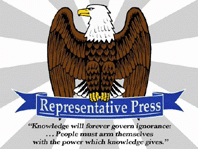"Government Must Be The Savior"
"The term "permanent war economy" is attributed to Charles Wilson, CEO of GE, who warned at the end of World War II that the US must not return to a civilian economy, but must keep to a "permanent war economy" of the kind that was so successful during the war: a semi-command economy, run mostly by corporate executives, geared to military production. Among other very important contributions, Melman has written extensively on the harmful effects of gearing much of the economy to military production rather than to civilian needs.
What he describes is correct and important, but there are other dimensions to be considered. After World War II, most economists and business leaders expected that the economy would sink back to depression without massive government intervention of the kind that, during the war years, finally overcame the Great Depression. The New Deal had softened the edges, but not much more. Business understood that social spending could overcome market catastrophes as well as military spending, but social spending has a downside: it has a democratizing and redistributive effect while military spending is a gift to the corporate manager, a steady cushion. And the public is not involved. People care about hospitals and schools, but if you can "scare the hell out of them," as Senator Vandenberg recommended, they will huddle under the umbrella of power and trust their leaders when it comes to jet planes, missiles, tanks, etc. Furthermore, business was well aware that high-tech industry could not survive in a competitive free enterprise economy, and "government must be the savior," as the business press explained. Such considerations converged on the decision to focus on military rather than social spending. And it should be borne in mind that "military spending" does not mean just military spending. A great deal of it is high-tech R&D. Virtually the entire "new economy" has relied heavily on the military cover to socialize risk and cost and privatize profit, often after many decades: computers and electronics generally, telecommunications and the Internet, satellites, the aeronautical industry (hence tourism, the largest "service industry"), containerization (hence contemporary trade), computer-controlled machine tools, and a great deal more. Alan Greenspan and others like to orate about how all of this is a tribute to the grand entrepreneurial spirit and consumer choice in free markets. That's true of the late marketing stage, but far less so in the more significant R&D stage. Much the same is true in the biology-based sectors of industry, though different pretexts are used. The record goes far back, but these mechanisms to sustain the advanced industrial economy became far more significant after World War II.
In brief, the permanent war economy has an economic as well as a purely military function. And both outcomes -- incomparable military force and an advanced industrial economy -- naturally provide crucial mechanisms for foreign policy planning, much of it geared to ensuring free access to markets and resources for the state-supported corporate sector, constraining rivals, and barring moves towards independent development." - "The Savage Extreme of a Narrow Policy Spectrum" Five Questions with Noam Chomsky By MERLIN CHOWKWANYUN
We have State-Capitalism NOT Capitalism
"The word to use remains "security," not "subsidy," as Air Force Secretary Stuart Symington advised in the early days of the Cold War, when government was being mobilized as the "savior" of private power, which could not survive in a competitive economy, as the business press frankly acknowledged.
The Fraud of Neoliberal Economic Theory


















No comments:
Post a Comment